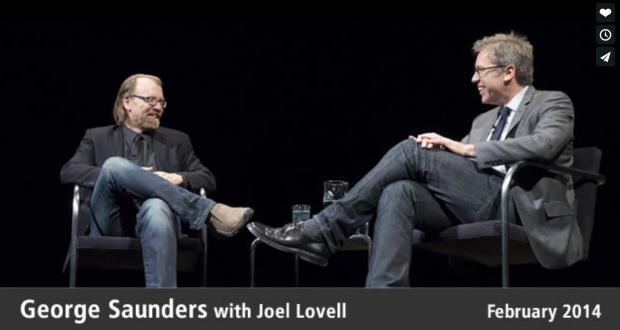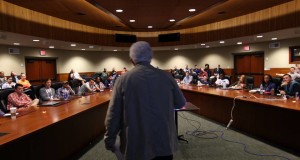It’s true.
I took a class at the University of Pittsburgh once taught by (now) deputy editor for the New York Times Magazine, Joel Lovell.
You’re probably thinking, “Come on! You expect me to believe that? Why didn’t you use that to promote your book, or something!”
He was an editor for GQ magazine at the time. One of the GQ main contributors, Jean Marie Laskas, was the chief of the English Department then. Likely, she still is.
Joel taught a class on blogging and the changing sphere of modern publishing. It was one of those fascinating classes that brought more questions to the table of discussion than it produced answers. For my class, I ran a blog titled, “Lord’s Day, Game Day.” The blog surrounded the topic of the two gods I was worshiping at the time, the God of the Bible and the Pittsburgh Steelers.
The class was fantastic and Joel was more than cordial. He was down-right genuine.
Why am I telling you this?
Because I’m a fool, that’s why. And because, as my wife and my sister, Marta, can attest, I’m a man full of regrets.
At one point during the class, Joel brought in a guest speaker: Journalist Michael Hastings, who was also writing for GQ and had covered stories in Afghanistan.
During the class, Hastings talked about the changes happening in journalism. How it has become more and more human and personable. Relateable. Some old-school, die-hard journalists might object this in horror, but it’s a reality we face.
During his presentation, Hastings also talked about the state of Afghanistan, which was in shambles and unrecoverable in his estimation.
At the time, I had returned home from Iraq just six months prior.
“That’s what they all said of Iraq,” I objected. “A lost cause. But I was there. It’s better now. It’s stabilizing.”
This was 2009. The statements I made were true at that time.
Hastings graciously conceded. There was no animosity at all. Just mutual respect, which was more than a college senior might deserve from a seasoned journalist and writer like Hastings.
A week later, after class, Joel pulled me aside and said something like, “I was talking to Michael after his visit. He said he sees something you. That you have what it takes to make something of yourself.”
I don’t remember if I blushed or smiled or what my physical reaction was. I’m sure I thanked him. I felt something like triumph inside.
That was my final semester at Pitt. I graduated. Got my diploma. Ate some Swedish meatballs at the graduation ceremony. All the congratulatory speeches were canned. Then I forgot about school.
I was exhausted, you see. It took me almost 12 months to feel normal again after Iraq. I wasn’t damaged. I didn’t have PTSD or Moral Trauma. I was just tired. In Iraq, I had worked with a purpose. We published the Mountain View six days a week and my photos and stories got published around the world. I was on a constant high to produce. I never missed a deadline. I worked from eight in the morning until ten at night most days, taking a break for just lunch and dinner, and to check Steelers news.
When I returned home to Pittsburgh, I was just a college graduate working at a pizza job.
Once I graduated, I just wanted a break. I wanted to do nothing for a while. So I detached from Pitt, from all the professors, the writing programs, the whole community.
Then, years later, I got ready to publish Amidst Traffic, and I couldn’t even remember most of my professors’ names.
“What was the GQ editor’s name? Joe? John? Love-something?”
I searched through years of old emails. Joel. Joel Lovell, that’s him!
I looked him up online, but I couldn’t find much about him at the time. No personal website. No facebook account. Just a twitter handle that kinda, maybe looked like him. What kind of magazine editor has so little about him on the web? Then I discovered he had become an editor at the New York Times Magazine. I couldn’t believe it. My golden ticket. Instant fame.
It’s not what you know, but who you know, right?
But I didn’t know Joel.
I had taken his class. We’d shared a few conversations. He gave me an A. But that didn’t mean I knew him. But I pursued him all the same. I wrote him emails, mailed him a copy of my book, autographed. Finally, I created a Twitter account and tweeted him. Nothing.
What did I expect? I had disappeared for almost two years. I had taken one class with him.
Later on, I even tried to reach out to Michael Hastings (once I finally managed to remember his name).
“Remember me?” I wanted to say. “You told Joel that you thought I would make something of myself. Well. Let’s prove it. Together.”
The slipped opportunities.
For years, I have run on the presumption that just because a GQ journalist said I had potential that I would conquer the world of book sales. With a short story collection, of all things. The only short story writer who’s sold a decent amount of books in recent history was George Saunders. Oh, and look who it is interviewing him here … Joel Lovell.
The New York Times had made Saunders an instant success right around the same time I published Amidst Traffic.
And in my brain, (filled with delusions of grandeur) I thought that the Times could have easily replaced Saunders with Sauret. Heck. They both begin with the letter S.
So why not?
But I’ve listened to Saunders read from his book. I’ve got some hair to lose and some talent to grow to be anything of his fame.
So what’s the point of all this? Why am I telling you this?
For two reasons, which contradict each other:
One, never detach from people. Pitt had (and still has) a wealth of fantastic professors and people in the literary industry that really could have helped me in the last few years if I hadn’t detached so quickly. I do wish that I had stayed in touch with Joel. Not just because he’s a freaking editor at the Times Magazine, but because he was a great guy, and he genuinely made me believe in my potential. It’s good to surround yourself with encouraging people. So if you know someone, latch on. Just don’t leech on.
But two: quit trying to chase fame. I constantly have to remind myself of this. Instead, do the work. If you’re a writer, write. If you’re a photographer, shoot. Do. The. Work. Rewards will come later. Not only because you know the right people, but because the right people will want to surround themselves around you based on what you’ve accomplished, not based on who you know.
What about you?
Is there someone in your life that has helped propel your career?
 Michel Sauret – Award-Winning Army Journalist | Independent Author Award-Winning Army Journalist, Independent Author
Michel Sauret – Award-Winning Army Journalist | Independent Author Award-Winning Army Journalist, Independent Author






